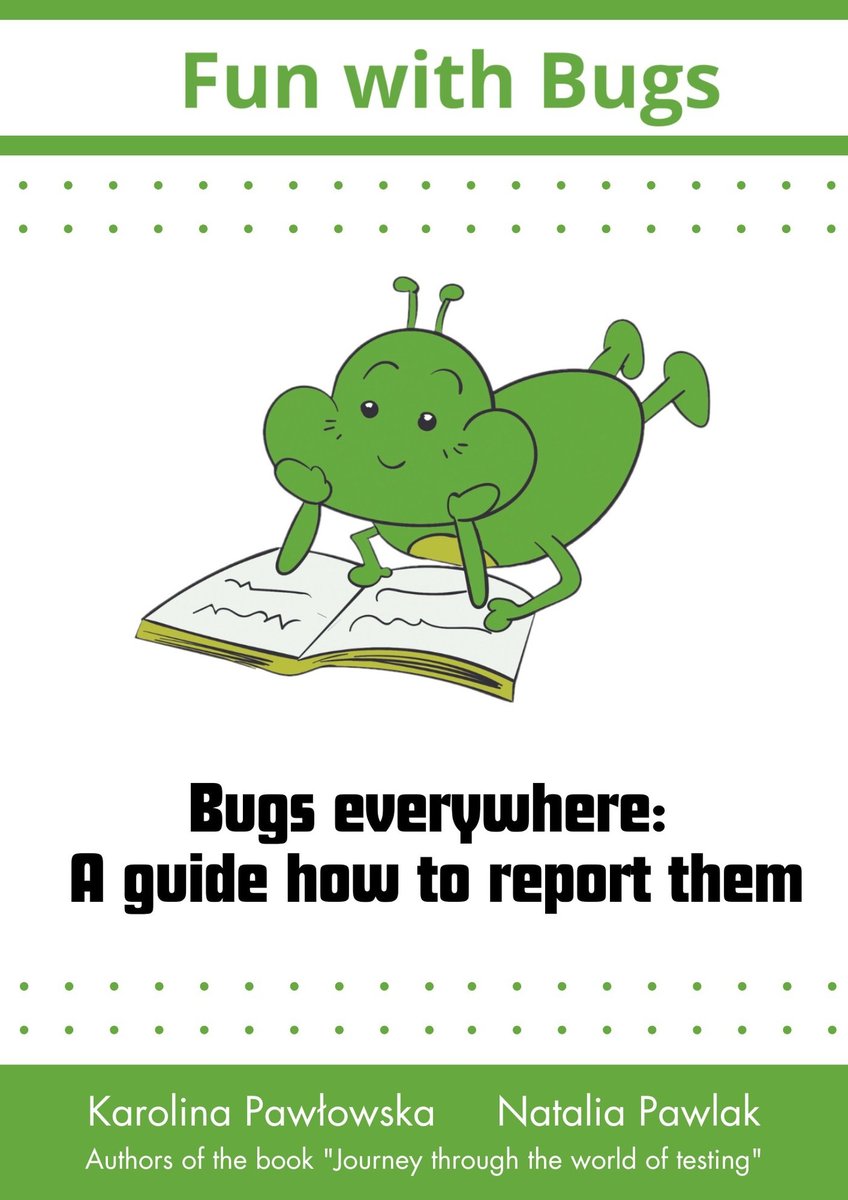Tajemnica odporności psychicznej. Jak uodpornić
| Szczegóły | |
|---|---|
| Tytuł | Tajemnica odporności psychicznej. Jak uodpornić |
| Rozszerzenie: | |
Tajemnica odporności psychicznej. Jak uodpornić PDF - Pobierz:
Pobierz PDF
Tajemnica odporności psychicznej. Jak uodpornić - podejrzyj 20 pierwszych stron:
Strona 1
Strona 2
“In these challenging times, you’d be hard-pressed to find a book as
helpful as The Stress-Proof Brain. In this groundbreaking work, Melanie
Greenberg combines ancient mind-calming techniques with a modern-
day scientific understanding of how the brain works to teach you how to
transform your response to stress. The book is informative, backed by
research, and practical. It covers a range of subjects, from overcoming
trauma to taming your inner critic to improving your sleep. Each chapter
contains easy-to-learn practices to help you develop a stress-free brain.
This manual for finding peace and well- being gets my highest
recommendation.”
—Toni Bernhard, award-winning author of How to Be Sick, How to
Wake Up, and How to Live Well with Chronic Pain and Illness
“You can’t eliminate stress, but you can do a lot to control it. Start by
reading this book. This is one of those rare books that everyone should
have on their shelf. Buy one for yourself and one for a friend.”
—Frank Sonnenberg, award-winning author of six books,
consultant to Fortune 500 companies, and named one of
America’s Top 100 Thought Leaders by Trust Across America
“The Stress-Proof Brain is a brilliant book written to help overcome stress’s
debilitating effects that keep you from creating success in life, whether
personal or professional. You will transform feeling stressed into feeling
confident, resilient, in control, and energized. You will find that you can
literally rewire your brain! If you feel stress has held you back in any area,
then this book is written just for you.”
—Lori Shemek, PhD, CNC, author of How to Fight
FATflammation!, health contributor to Fox News, and named a
Top Health and Fitness Expert by The Huffington Post
Strona 3
“In our hyper-connected, fast-paced modern world, we are continually
confronted with threats and demands that trigger a cascade of unhealthy
biological responses known as stress. In The Stress-Proof Brain, Melanie
Greenberg not only provides readers with practical tools to identify their
past and current stressors, she teaches them about behavioral and psy-
chological practices, such as mindfulness meditation, that can short-
circuit unhealthy biological responses to stressors and increase resilience.
The book is packed with wisdom from decades of research on behavioral
and neurological aspects of stress, but is written in an accessible and
engaging style.”
—Stephen J. Lepore, PhD, professor and founding chair in the
department of social and behavioral science at Temple University
“If you are one of the many people who suffers from chronic stress, then
The Stress-Proof Brain is just what the doctor ordered. Melanie Greenberg
has put together an immensely readable combination of psychology and
neuroscience to understand why you are stressed, and evidence-based
tools to help you retrain yourself to live a happier and stress-free life.”
—Art Markman, professor of psychology and marketing, as well as
director of the Human Dimensions of Organizations program at
the University of Texas at Austin; author of Smart Thinking, Smart
Change and coauthor of Brain Briefs; and cohost of the NPR radio
show Two Guys on Your Head
“This book provides clear guidelines on how to change the way we look
at the stress-producing events in our life. Melanie Greenberg reminds us
that stress is a fact of life and that it’s not going away; instead, she shows
us how to control the way our mind responds to it.”
—LaRae Quy, former undercover and counterintelligence FBI
agent, founder of the Mental Toughness Center, and author of
Secrets of a Strong Mind and Mental Toughness for Women Leaders
Strona 4
“This innovative book teaches you how to regain control of your stressors so
you can live your best life and be your best. If you want to transform your
stress into an opportunity for personal growth, this is the book for you.”
—Elizabeth Hamilton-Guarino, CEO of The Best Ever You Network,
and author of PERCOLATE
“Stress is a fact of life in today’s world, but it doesn’t need to run your life.
One of my favorite authors, psychologist Melanie Greenberg, has written a
wonderful new book filled with practical, easy-to-understand tips to rewire
your brain to become more resilient to stress and generate positivity. The
Stress-Proof Brain is a must-read for anyone who experiences stress. Come to
think of it, that’s all of us!”
—Jesse Lyn Stoner, founder of Seapoint Center for Collaborative
Leadership, and coauthor of Full Steam Ahead! and Leading at a
Higher Level
“The Stress-Proof Brain beautifully integrates research in mindfulness, brain
science, and positive psychology. Whether your stress relates to your work,
finances, relationships, or health, this book will help you learn the informa-
tion and tips you need to survive and thrive. The strategies the book teaches
are multipurpose so the reader will gain an efficient set of tools for calming
anxiety and maximizing resilience in a wide variety of life situations.”
—Alice Boyes, PhD, author of The Anxiety Toolkit, and emotions
expert for Women’s Health magazine (Australian edition)
“For people suffering from stress, this book is a godsend. Bringing in the
latest science on how to deal with stress while using clear, easily accessible
language, this book gives you the tools you need to live a more calm, peace-
ful, and stress-free life.”
—Kristin Neff, PhD, author of Self-Compassion
Strona 5
Strona 6
The
Stress -
Proof
Brain
Master Your Emotional Response to Stress
Using Mindfulness & Neuroplasticity
MELANIE GREENBERG, PhD
New Harbinger Publications, Inc.
Strona 7
Publisher’s Note
This publication is designed to provide accurate and authoritative information in
regard to the subject matter covered. It is sold with the understanding that the
publisher is not engaged in rendering psychological, financial, legal, or other pro-
fessional services. If expert assistance or counseling is needed, the services of a
competent professional should be sought.
Distributed in Canada by Raincoast Books
Copyright © 2016 by Melanie Greenberg
New Harbinger Publications, Inc.
5674 Shattuck Avenue
Oakland, CA 94609
www.newharbinger.com
“Practice: Mindfulness of Your Breath” is adapted from MINDSIGHT: THE NEW
SCIENCE OF PERSONAL TRANSFORMATION by Daniel J. Siegel, copyright ©
2010 by Mind Your Brain, Inc. Used by permission of Bantam Books, an imprint of
Random House, a division of Penguin Random House LLC. All rights reserved.
Cover design by Sara Christian; Acquired by Wendy Millstine;
Edited by Will DeRooy; Text design by Michele Waters-Kermes and Tracy Carlson
All Rights Reserved
Library of Congress Cataloging-in-Publication Data
Names: Greenberg, Melanie, author.
Title: The stress-proof brain : master your emotional response to stress using
mindfulness and neuroplasticity / Melanie Greenberg.
Description: Oakland, CA : New Harbinger Publications, 2017. | Includes
bibliographical references.
Identifiers: LCCN 2016036013 (print) | LCCN 2016052428 (ebook) |
ISBN 9781626252660 (paperback) | ISBN 9781626252677 (pdf e-book) |
ISBN 9781626252684 (epub) | ISBN 9781626252677 (PDF e-book) |
ISBN 9781626252684 (ePub)
Subjects: LCSH: Stress (Psychology) | Emotions. | Stress management. | Neuro
psychology. | BISAC: SELF-HELP / Stress Management. | PSYCHOLOGY /
Neuropsychology. | HEALTH & FITNESS / Healthy Living.
Classification: LCC BF575.S75 G6684 2017 (print) | LCC BF575.S75 (ebook) |
DDC 155.9/042--dc23
LC record available at
Strona 8
To Brian and Sydney, who light up my life
Strona 9
Strona 10
Contents
Introduction1
PART 1: Understanding Your Stress
1 Your Brain’s Stress Response 9
2 What Type of Stressor Are You Facing? 29
PART 2: Calming Your Amygdala
3 Staying Grounded in the Present Moment 57
4 Facing and Accepting Your Emotions 81
5 Gaining Control over Your Stress 101
6 Learning Self-Compassion 121
PART 3: Moving Forward with Your Prefrontal Cortex
7 Becoming Cognitively Flexible 141
8 Bringing in the Positive 163
9 Finding the Right Mind-Set 177
10 Living Healthy in the Face of Stress 189
Conclusion209
Acknowledgments211
Resources213
References215
Strona 11
Strona 12
Introduction
You’re reading this book because you’re stressed. You may be facing
stress from some unexpected event or a developmental transition that
creates new demands and uncertainty. You may be caring for a new
baby, renovating a house, facing a relationship breakup or the loss of a
loved one, starting a business, or facing unemployment. Or you may
feel chronically stressed on a daily basis by an unhappy relationship,
loneliness, weight, a chronic illness, financial struggles, or unreward-
ing work. Your brain may still be carrying around the emotional
burden of childhood trauma or neglect. In addition, you may be dealing
with daily frustrations brought about by traffic; bills; home mainte-
nance; demanding family members, bosses, or customers; or an aging
body. Whatever the source of your stress, after a while it can make you
feel tired, worried, or worn out. But if you understand your brain’s
hardwired stress response, you can put your brain on a more calm,
focused, and positive track. Handling your stress in this way will bring
you more happiness and success!
Your Brain Under Stress
When you’re stressed out, you feel thrown off balance. Your thoughts
race at breakneck speed as you imagine negative consequences or try
to come up with quick solutions. Your heart pounds, and your breath-
ing gets shallow as waves of fear emanate from your chest and belly.
Your muscles tighten. You feel as if you can’t sit still or think straight.
You may criticize yourself and regret having gotten into a stressful situ-
ation. Eventually, this uncomfortable feeling becomes too much, and
Strona 13
2 Stress-Proof Brain
you may numb yourself or zone out with food, alcohol, or mindless TV.
Or you may drive yourself so hard that you get worn out, become
cranky, and find yourself living an unbalanced, unhealthy life.
You may blame and criticize yourself for these unproductive
responses to stress, but you shouldn’t.
The stress response has been with us for thousands of years. It
helped humans survive in the days when we faced threats of starvation
and marauding lions and tigers.
The amygdala, an almond-shaped structure right in the middle of
the brain, evolved specifically to respond to threats. It receives input
from the senses and internal organs. When your amygdala determines
that a threat is present (for example, you see an angry face or hear a
crashing noise), it “sounds the alarm”: using hormones and neurotrans-
mitters (chemical messengers), it initiates a cascade of physiological
changes that prepare you to either fight or flee. This is why stress can
make you feel wound up and irritable or panicky and avoidant.
This stress response is great if you’re facing an acute stressor, such
as an attacker. Before you even have time to think, your heightened
alertness and impulse to fight or escape can save your life. Staying
calm and thinking things through at this point would waste valuable
seconds.
However, most people very rarely face these types of imminent
threats (although the news would have you think otherwise). Far more
common are the day-to-day challenges of resolving conflict, getting
things done, paying the bills, dating, and taking care of yourself and
your family in a changing, challenging world. There are also psycho-
logical stressors, such as loneliness, uncertainty, failure, rejection, and
threats to your health, security, and livelihood.
In the short term, stress hormones (such as cortisol) energize you,
motivate you to overcome obstacles, and help you focus on the problem.
Over time, however, the same hormones can lead to anxiety, cata-
strophic thinking, or inappropriately impulsive action. They can nega-
tively affect your heart, immune system, weight, and even brain
Strona 14
Introduction 3
functioning. In other words, your brain’s automatic stress response can
be helpful when you’re facing physical danger or an immediate chal-
lenge but it’s unhelpful when you’re facing prolonged difficulties or
repeated obstacles. Therefore, in order to meet your long- term
goals—to build financial stability, find and maintain a loving relation-
ship, care for a family, own a home, or succeed at a job or business—
you need to manage your stress so that it doesn’t derail you. You need
to learn to master normal life transitions, to overcome unexpected
crises and disappointments, and even to avert potential catastrophes.
Even if you’re already experiencing the negative effects of stress, it’s not
too late to make a difference. Your brain and body have remarkable
self-healing capacities.
You Can Change Your Brain
Your brain has the ability to regenerate and heal itself through a
process known as neuroplasticity. You can grow new brain neurons;
create new, positive, and productive brain pathways; and enlarge the
parts of your brain that help you think clearly so that you view life
stressors as manageable challenges rather than insurmountable threats.
By harnessing the power of your prefrontal cortex, you can calm down
your amygdala so that you can respond more mindfully and effectively
to stress.
The prefrontal cortex is particularly large and well-developed in
humans and is responsible for our amazing thinking and problem-
solving capacities. Located just behind your forehead, your prefrontal
cortex is like the CEO of your brain. It can simultaneously hold in
mind information from your current situation and from your past
experience, helping you make informed choices about the best course
of action. When you encounter a stressor, information flows from your
sensory organs (such as your eyes and ears) to both your amygdala and
your prefrontal cortex. However, the pathway to your amygdala is
faster, to allow for emergency action under imminent threat. Your
Strona 15
4 Stress-Proof Brain
prefrontal cortex responds to stress more slowly than your amygdala,
because it has to process a lot more information.
Your prefrontal cortex can also rein in your amygdala. It can tell
your amygdala to relax—for example, because the snake you think
you’re seeing is just a stick lying in the path; because change, uncer-
tainty, and loss are a natural part of life; so that you can stay balanced
and take better care of yourself for the long haul; or because there are
people and resources that can help you with your problems. Or it can
tell your amygdala that you can handle a challenging situation because
you’re going to persevere and work hard until you’ve learned all the
skills you need.
These are some of the strategies used by a well-functioning pre-
frontal cortex that has solid neural pathways to communicate back
and forth with your amygdala and other parts of your brain. When this
process works well, your prefrontal cortex takes over, calms down the
panic, and helps you deal wisely and strategically with stressors.
So then why are you feeling overwhelmed by stress? Well, it may
be for one of the following reasons:
• You have an overactive amygdala.
• There’s a problem in communication between your prefrontal
cortex and your amygdala.
• Your prefrontal cortex isn’t functioning properly.
• Your prefrontal cortex doesn’t have the right information
from past experience to calm things down.
• You grew up in chaotic circumstances or faced problems that
you were helpless to change, such as an addicted, neglectful,
or depressed parent; family violence; or poverty.
• As the result of a string of disappointments and failures, you
have automatic negative expectations, a feeling that the world
isn’t safe or supportive, lack of trust in other people to help
you, or lack of self-confidence.
Strona 16
Introduction 5
Luckily, your brain’s neuroplasticity means that you can redirect
your thought processes to build more present-focused and hopeful
neural pathways and a more interconnected and smoothly functioning
brain.
A Program to Build a Stress-Proof Brain
This book will teach you a set of brain-based coping skills to help you
reorient your brain so that it can be more resilient to stress. This
program is based on the latest research on stress and emotion, the
psychological literature on resilience and success under challenging
circumstances, and my own experience training psychologists and
treating acutely or chronically stressed clients. This program is also
grounded in my experience of growing up in a country (South Africa)
facing social and economic turmoil, and having to make difficult deci-
sions about my life path and future in the face of considerable
uncertainty.
Although stress is a fact of life, you don’t have to let it overwhelm
you or keep you stuck in ways of thinking and behaving that interfere
with your health, happiness, and ability to meet your life goals. You
can become the CEO of your own brain, keeping your prefrontal
cortex firmly in charge so that it can calm down your amygdala,
making you less reactive to stress. This book will help you
• curb unhelpful responses such as avoidance, rumination, and
fearful thinking;
• gain clarity and focus;
• restore your sense of control and a growth mind-set;
• use grit and self-compassion to motivate yourself; and
• live a healthy and balanced life in the face of stress.
In today’s rapidly changing world, a stress-resilient brain is the best
thing you can have for staying focused, fit, connected, and on top of
Strona 17
6 Stress-Proof Brain
your game. Although you can’t erase negative life events and past mis-
takes, you can take the lessons from these experiences and turn them
into fuel for your journey. You can generate inner calm, build healthy
lifestyle habits, and facilitate clear thinking to sustain you for the long
haul.
How This Book Is Organized
This book is divided into three parts. In part 1, “Understanding Your
Stress,” you’ll learn about your brain and body’s stress responses. You’ll
also learn what type of stressors you’re facing and how stress affects
your mental and physical health. In part 2, “Calming Your Amygdala,”
you’ll learn to stay grounded in the present moment, even when your
amygdala is sounding the alarm bells. You’ll also learn to face and
calm down difficult emotions, rather than avoiding them. Finally,
you’ll learn ways to see your stressors as more controllable and use self-
compassion to help your amygdala relax. In part 3, “Moving Forward
with Your Prefrontal Cortex,” you’ll learn to be cognitively flexible and
to combat worry, perfectionism, and hypervigilance. You’ll learn to
recruit your brain to positive ends. You’ll also learn how to view your
stressors as challenges and focus on expanding your coping skills.
You’ll learn to be grittier in dealing with your stressor and live a
healthy, balanced life despite the presence of stress.
Strona 18
PART 1
Understanding Your Stress
Strona 19
Strona 20
CH AP T ER 1
Your Brain’s Stress Response
Stress is a fact of life, and it’s here to stay. Loss, conflict, uncertainty,
loneliness, health challenges, competition, deadlines, and financial
strain are things we all experience. Your brain’s hardwired response to
stress, however, is meant to protect you from immediate physical danger.
Much of our physiological response to stress was laid down through
thousands of years of evolution. A programmed stress response helped
our ancestors take fast physical action to keep from being eaten by
lions or failing to compete for food. In that sense, it was certainly a
good thing! Unfortunately, the same programmed stress response isn’t
too good at helping us deal with modern-day stresses such as paying
the bills, dealing with a grumpy boss or a sick family member, and
fighting with our loved ones. These situations don’t generally call for
physical action—they require understanding people’s intentions;
dealing with failure, loss, or uncertainty; solving logistical problems; or
sustaining mental effort. They require us to process lots of information
in a short time, juggle competing priorities, and deal with a rapidly
changing world. If you’re feeling stressed, it may be because your brain
is oversensitive to danger. Your brain may be signaling that situations
such as those listed above are threats to your survival and readying you
for extreme action that isn’t necessary or appropriate to your day-to-
day challenges (Sapolsky 2004).










